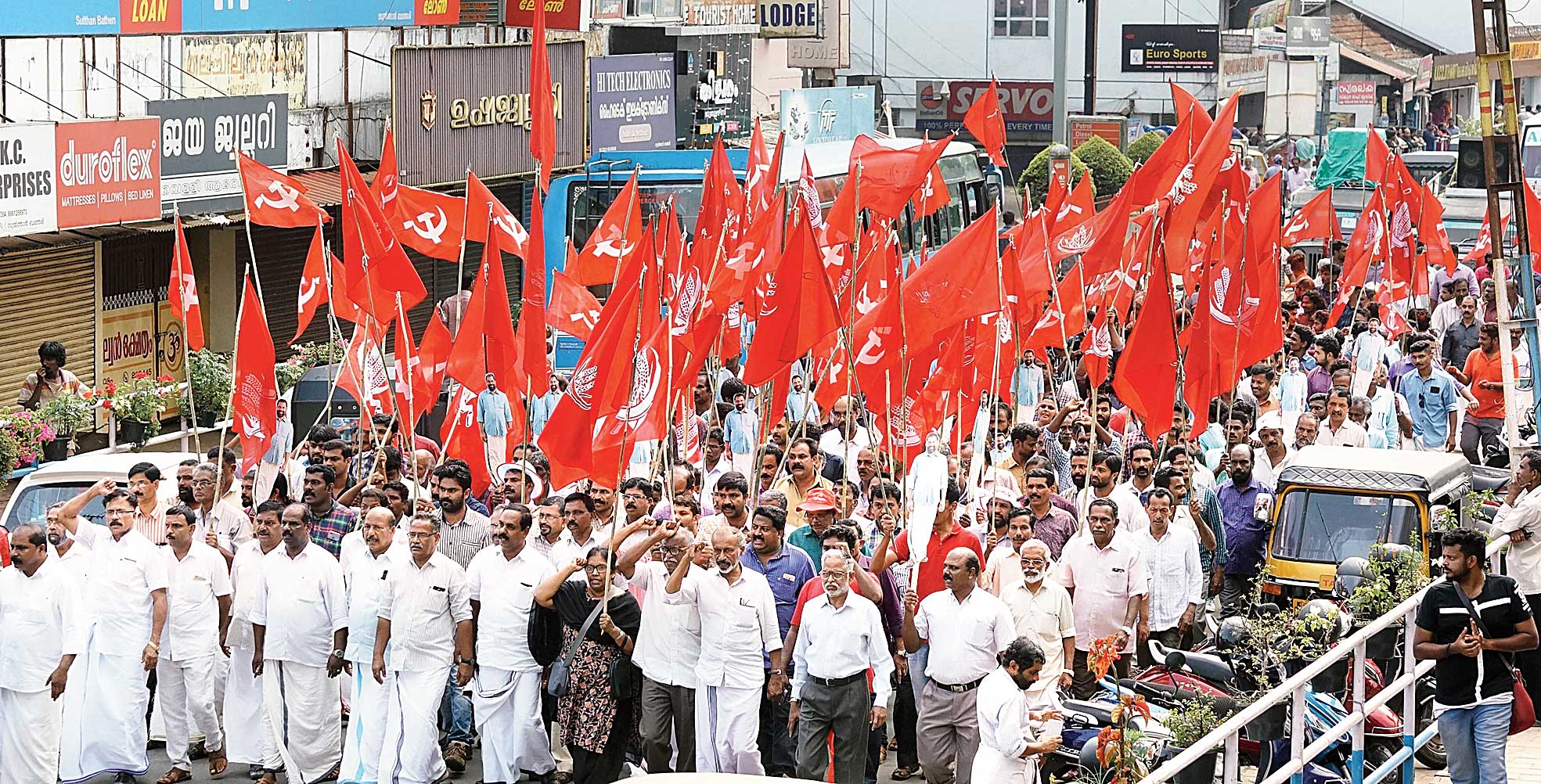Dhanil Divakaran is yet to decide between Congress president Rahul Gandhi and the CPI’s P.P. Suneer, candidates from his constituency, Wayanad.
But this young farmer with an MBA degree and a Sangh parivar orientation since childhood is categorical that he will not repeat the mistake of five years ago.
In 2014, he had voted in favour of Narendra Modi and his NDA candidate from the constituency, where farmers continue to commit suicide because of indebtedness caused by heavy bank loans and the plummeting prices of cash crops.
“My father, a hardworking farmer who subscribed to the BJP ideology, committed suicide on December 20 last year when the bank initiated revenue recovery on the assets of a guarantor for a loan we had failed to repay,” the 36-year-old resident of Chathamangalam Kunnu in Pulpally said.
“I’m neck deep in debt and can see no way of repaying them. Modi never supported the country’s struggling farmers. The Centre has retained its anti-farmer import policies only to please the corporate houses. The farmers were never a priority with Modi.”
He added: “Look at the NDA candidate here. He is not a politician, just a rich man from outside with little or no grasp of the farm crisis in Wayanad, which is the Vidarbha of Kerala (Vidarbha is an impoverished region of Maharashtra where farmer suicides are endemic).”
Eleven other farmer families in Wayanad have lost earning members to suicide in the past year. More than 100 farmers in Wayanad killed themselves during Modi’s five-year tenure, all of them victims of falling prices and the banks’ inflexible attitude. No relief package or policy corrections have been announced, though.
Dhanil’s father Divakaran had only attended primary school but decided to provide the eldest of his two sons with higher education, hoping he would earn a professional’s salary and buttress the family’s finances.
Dhanil went to Secunderabad, now in Telangana, to study MBA with an education loan of Rs 3 lakh from the public-sector Punjab National Bank. Divakaran spent another Rs 2 lakh from his savings to support his education.
Dhanil passed with good marks, only to find that Wayanad offered little by way of job opportunities for an MBA.
He worked with companies in Bangalore and Hyderabad but earned a salary that was half the EMI for the bank loan. He had still managed to repay Rs 40,000 of the loan when his mother was diagnosed with cancer. The doctors said it was curable — if the family forked out Rs 4 lakh.
Divakaran borrowed Rs 4 lakh from the Kerala State Financial Enterprises, a public-sector non-banking financial company, to pay the hospital. But Dhanil’s mother died last September, and three months later Divakaran committed suicide.
“I have inherited these debts. The guarantors for the two loans are still facing recovery proceedings. It was my MBA that forced my father to commit suicide,” Dhanil said.
“We had three acres of patta land before and the income from it was enough to repay debts. But seven years ago the government declassified the land, along with 47 acres of neighbouring families’ plots, as forestland. They withdrew the validity of the patta. I now have no land of my own. So the banks are troubling the guarantors.”
Without a job that can provide him a decent income, Dhanil continues to live in the family’s old, small house with his wife and six-year-old son. He has turned a hardworking farmer like his father, growing coffee, pepper and cardamom.
“My hard work can help meet the family’s needs but repaying the bank loans remains a challenge. This is the situation that leads to farmer suicides,’’ Dhanil said.
Since he doesn’t own the land he cultivates, Dhanil is not a beneficiary of the Rs 6,000 annual dole for ailing farmers that Modi has announced.
“I had hopes when Modi announced the Mudra loan scheme to promote young entrepreneurs,” he said.
“Such a loan could have helped me start a small production unit out of farm produce. But because of the two loan defaults, my Cibil score is very poor. So, no Mudra loan is coming my way.”
One’s Cibil (acronym for Credit Information Bureau India Limited) score is a number that banks and non-banking financial companies use to ascertain one’s creditworthiness and likelihood of repaying loans on time.
“If we are voting Modi back to power, there is no guarantee that he would become farmer-friendly,” Dhanil said.
“Wayanad’s farmers deserve a better deal as they contribute significantly to the national exchequer by producing export-quality spices. The farmers and their wrath will decide the outcome of this election at the national level.”
Wayanad votes on April 23.










